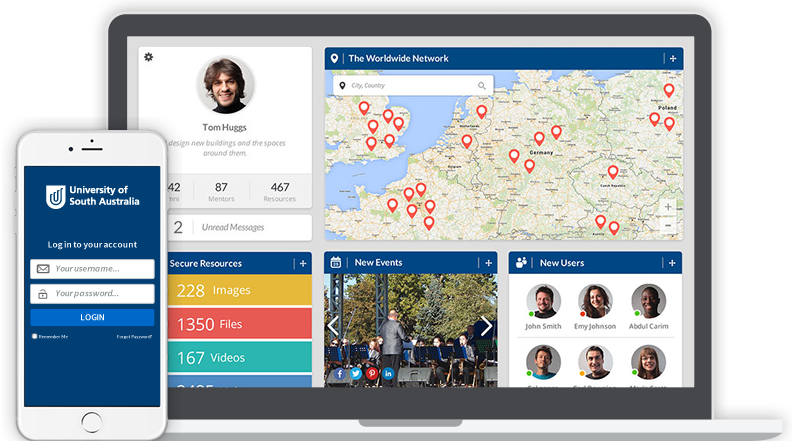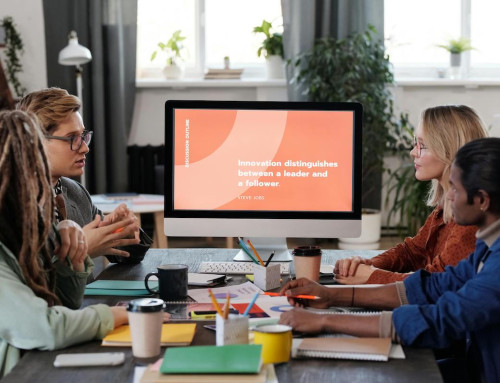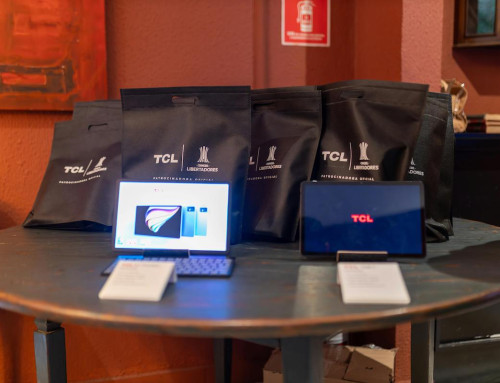Online platforms are incredible tools for engagement. In an increasingly interconnected world it is invaluable having tools that break geographical and age boundaries; providing stakeholders with a 24/7 direct connection to their university network.
Whilst this feels intuitively true, it can be tricky to quantifiably prove the value of these platforms, as changes of human relationships, emotions and interactions are hard to measure. Alongside the long-term benefits of creating meaningful lifelong relationships there are more immediate positive impacts that can be measured.
We offer three ways to directly tie your platform to more common KPIs that development and alumni relationship offices are often measured against:
1. IMPACT on Quality of Data:
The existence of an interactive online platform gives users a reason to update their details with the university. Participating in a social space comes with the expectation of presenting yourself accurately and this motivates the entry of data that may otherwise be a challenge to acquire, such as business details and location. This is further facilitated when there exists easy syncing capabilities with other networks, such as LinkedIn, pulling data locked in hard-to-reach sources into a platform you control.
Data is not only key for alumni engagement, but hugely valuable for other areas as well such as international initiatives, prospect research for fundraising, admissions for graduate programmes, student success tracking for national surveys, and many more.
ACTIONS to prove impact: Establish a process to identify what data originated from your platform so you can prove its impact on data quality. We recommend three really important ones: new employment details obtained; new email addresses secured; lost alumni found.
2. IMPACT on Fundraising:
Fundraising is easily quantifiable with clear targets and numbers around campaigns and regular giving. But how can we tie in the effects of your platform? In fact, platforms are closely interlinked in supporting your fundraising efforts, a fact that is often overlooked by engagement teams.
A platform attracts a new crowd of alumni back to the institution by engaging them with volunteering; a gift of time that often precedes a financial gift. Platforms allow the identification of new alumni who have a provable inclination to give that would not have been flagged by traditional research methods on other databases. An online community also allows current donors and prospects to engage with current students, an incredibly important tool to accelerate the fundraising cultivation stage. When they help a fellow alumnus or a student, it highlights the needs of the university in a very personal and human way.
ACTIONS to prove impact: Task your prospect research team to analyse participation data from your platform to identify alumni who are giving time and record the number of newly identified prospects. Also track the participation of current donors and incorporate their experience in your fundraising stewardship conversations. Measure the giving rates and open rates of platform participants vs non-participants.
3. Quantify the IMPACT of Mentoring:
Mentoring is a bit of an abstract concept, regarded as difficult to track and measure. How useful is an interaction within a mentoring relationship? How often do interactions happen? What happens when mentor and mentee go offline?
These are all complex questions, but for students and alumni, having access to a diverse network of “experts” for advice is a powerful benefit.
Some institutions attach a monetary value: an hour of interaction is considered to have the value of one hour of consultancy. You can estimate that rate between £30 to £50 an hour. You might also estimate that each mentoring relationship will share a minimum of 4-6 hours of contact throughout the duration of the relationship.
ACTIONS to prove impact: Take measure of how many active mentoring relationships you have, multiplied by the average number of hours observed in relationships and then multiplied by the hourly value figure you’ve chosen (eg £45/hour). This gives you a “financial-equivalent” estimate on the value mentoring is giving to the university. Of course this calculation can be performed on your various other volunteering activities too!
Proving the IMPACT of Alumni Relations
As ROI and measurability start to become an acknowledged and powerful part of the job, the value and power of alumni relations is set to increase. With metrics comes measurability, KPIs and the opportunity to set SMART alumni marketing goals which in turn attributes value to a previously important but unmeasurable and consequently sometimes overlooked role. Being able to directly relate growth to alumni relations highlights the pivotal role this department plays in the life cycle of the university and the value of relationship platforms.
Want an online platform that makes an IMPACT?
Get in touch to learn how Aluminati can help.
Error: Contact form not found.
About Maria
Aluminati Strategic Consultant, Maria Gutierrez, has worked in higher education since 2009 with roles at Boston University, Harvard and King’s College London.
Maria is a Behavioural Coach (certified by the British Psychological Society & the International Society for Coaching Psychology), a Trainer for Mentoring Trainers, Mentors and Mentees and a Core Values interviewer.





